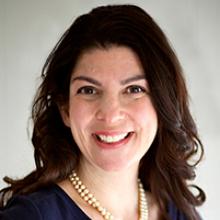School’s Out New York City (SONYC) Evaluation
School’s Out New York City (SONYC)—a pathway to success for youth in sixth, seventh, and eighth grades—offers afterschool programming for New York City (NYC) middle schoolers in a variety of activity areas. SONYC programs provide middle school youth with the support of caring adults and offer engaging, fun activities during the afterschool hours. SONYC programs are designed to support five goals:
- Foster academic, social, and emotional competencies and physical well-being in a safe and nurturing environment.
- Provide opportunities for youth to explore their interests and creativity.
- Build skills that support academic achievement and raise participant expectations and confidence.
- Cultivate youth leadership and community engagement.
- Engage parents and other caretakers to support the above goals.
With NYC Mayor Bill de Blasio’s support in 2014, enrollment more than tripled, greatly increasing the reach of SONYC programs. In October 2014, the New York City Department of Youth and Community Development (DYCD) partnered with AIR to study the SONYC initiative. The goals for the study are to describe implementation of SONYC programs; explore the influence of the expansion; capture stakeholder perceptions of SONYC programs; and explore the relationship between program participation and youth outcomes, specifically youth leadership development.
Each year, AIR has collected data from key stakeholders (e.g., program staff, school principals, families, and youth) on their perceptions of the SONYC initiative in key areas of interest, from program management to partnerships to program design and delivery. AIR has worked with program directors, staff, school principals, and teachers to better understand how the program is being implemented, where the program is seeing success, and where supports are still needed. Because youth leadership development is a key outcome of interest for the study, AIR has developed a self-report survey for youth about their perceptions of their attitudes and skills related to youth leadership. The team is currently expanding the survey and validating it for use with youth in high school.
Each year, AIR uses the evaluation findings to develop and disseminate lessons learned, including an annual infographic, a technical report, field-friendly briefs, and tools and resources that support quality programming. In collaboration with DYCD, for example, AIR supported the revision of DYCD’s youth leadership development framework and developed an aligned suite of tools for afterschool staff, including a youth leadership practice self-reflection tool and associated glossary of youth leadership terms.
Beginning in 2018. AIR will work with DYCD to better understand how the 2014 expansion has changed afterschool programming across the city, by collaborating with community-based organizations to document changes in staffing practices, professional learning, communication, and programming options.

